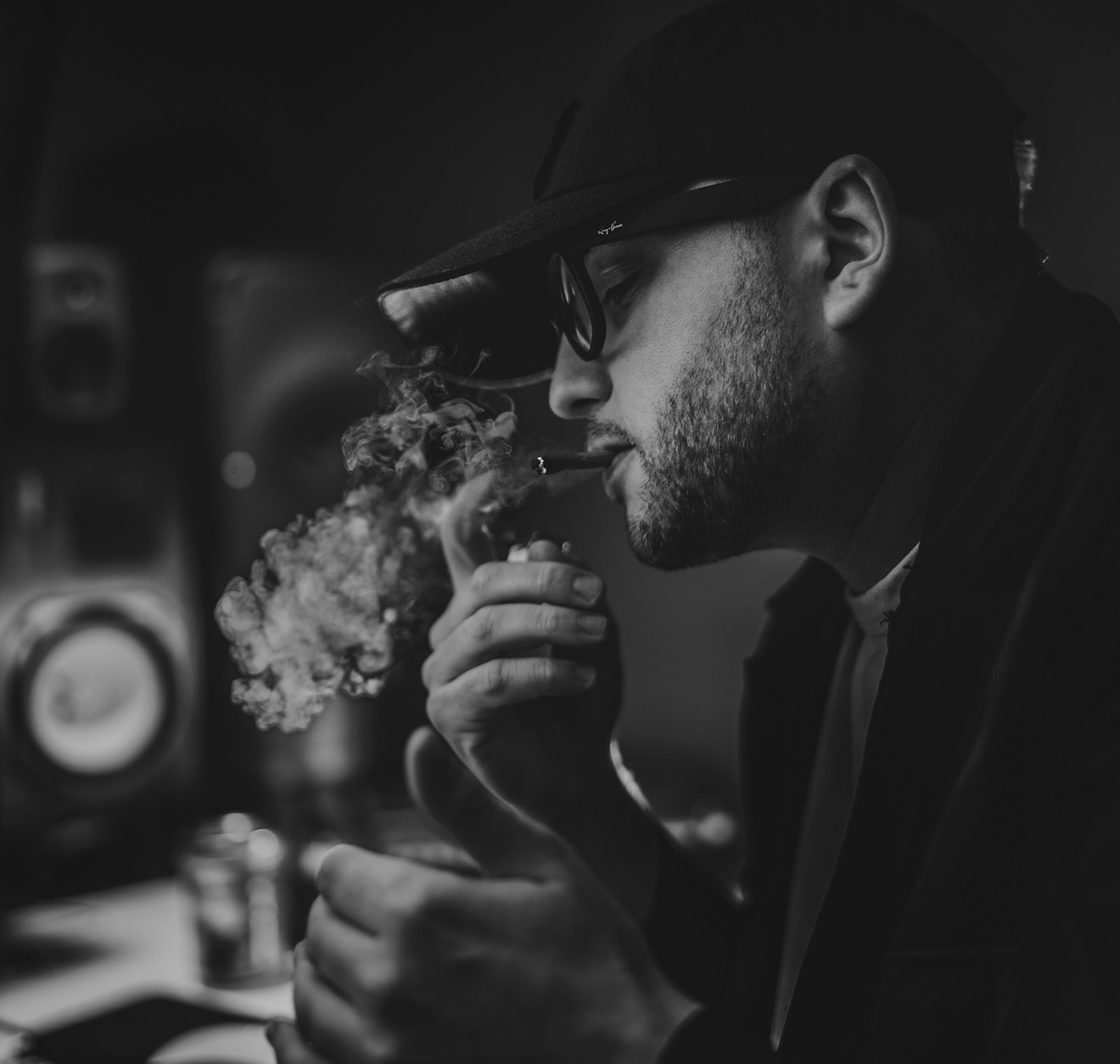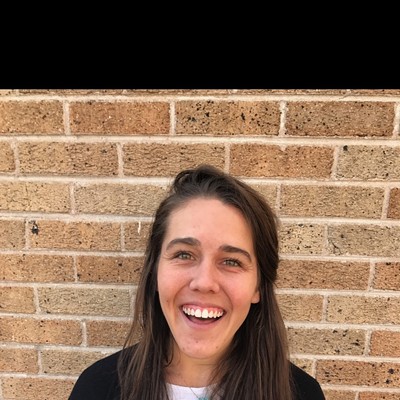London-based dubstep pioneer Caspa first performed in Denver at Cervantes' Other Side in 2009. Since then, he has played big stages at the Ogden Theatre and the Fillmore Auditorium. The intimacy of his three-night stand at The Black Box this weekend will be a rare treat for Denver audiences — and for Caspa, as well. The club's atmosphere recalls the places where he first heard and performed dubstep in London back in 2001. It evokes dubstep's original underground vibe — stripped down and unadorned, but with elaborate light shows and visuals. The space is dark; everyone huddles around a killer sound system.
We sat down with Caspa soon after he arrived in Denver to talk about how he got his start in dubstep at pirate radio stations and why he considers Denver a second home.
Westword: Tell us about your transition from being an athlete to music.
Caspa: Music was always in my family. My dad is a record collector, both of my brothers are record collectors, my older brother was a DJ, and that’s kind of how I got into ’90s hip-hop, through him. So there was always music in the family. Then, just living in London, having that progression of dance music. We had hardcore, jungle, drum-and-bass, dubstep, garage and grime. Dubstep in this evolution of dance music. You could clearly see it from jungle to drum-and-bass to UK garage and then split off into grime and dubstep. It’s all the same line, you know? That was super-important and natural.
We grew up with pirate radio stations that they don’t have in America. … [See our cover story, "Will the FCC Sink Pirate Radio in Colorado?"] A pirate radio station is a radio station set up guerrilla-style. So people would find an aerial, climb to like a fifty-block tower, put the aerial up, find a signal, tap into the signal, set up decks in a flat somewhere that no one would go, and play music and have a DJ playing music. I started out at Rinse FM, which is now legal, but it used to be illegal for ten years. You had to turn up, because if the police caught you, you were [put] in prison. It’s a big fine, because legal radio is a lot of money to be involved, and you’re literally tapping into the FM dial. We would turn up with our records, watching our backs every week to see if we were going to get arrested. That was natural to have that around us.
So being involved in music for me was, as long as I’ve been an athlete — it was always there. It was never a choice of, “I’m an athlete. Oh, now I’m going to be a musician.” When my shoulder injury in basketball happened, I [thought], “Well my next passion is music.” I didn’t really choose it. It fell into my lap a little bit, and I just went with it. And here I am, fast-forward fifteen years.
Is pirate radio competitive, and does it require strategy?
Sure, because even to get onto a station — I mean, how many people want to get on a station? You had to kind of know someone who owns it. No one knows who owns it, so how would you get them a demo? They heard what I was doing, and they asked me to go on and play a show. They just gave me a really good show, and I took it. Once you have it, to keep that show is [difficult], because everyone wants your spot. You’ve got the prime time, and they want the prime time, too. That was when dubstep wasn’t even cool dubstep. I was playing really early dubstep with Hatcha, as well.
It was such an important thing, pirate radio. When I come to the States and try to explain it to people, they get it, like, “Wow. It’s so bizarre that you had that.” In the ’90s, the police started shutting down parties. So the U.K. was like, “Fuck it. We’re going to drive to a field in the middle of the countryside. We’re going to bring a sound system. No one is going to know where the party is. No fliers, only word of mouth.” And you could turn up with 20,000 people in a field, like a festival, all illegal. "If you don’t let us party, we’re going to party. If you don’t let us play the music we love on the radio, we’re going to play music on the radio."
It sounds similar to how hip-hop emerged in New York.
And punk, as well. It has that kind of punk, hip-hop attitude, for sure.
Since your start in dubstep's early years, how has your style evolved?
There was one night once a month — on a Thursday, in a tiny club on Tottenham Court Road, which is in central London. It was maybe 200 people capacity, maybe 150. ... It was a night called FWD. The concept was forward-thinking bass music. So you’d go there and hear garage, grime and dubstep in the early stages. It’s all the same tempo, like 138-142 BPM, so you can mishmash it together. That’s where [dubstep] kind of popped out from, almost, and the thing that kind of built it. I went there when they had their first nights, in 2001. I knew as soon as I heard that music that I wanted to be part of this.
Really, no one knew about it. Even people who listened to pirate radio would very rarely know about the scene. It was so small. I was in it from the get-go. I started my first label in 2003; that was when I was on Rinse FM. Before it was called dubstep, I used to press up records. I used to carry them on the train. I would go to record shops in central London that didn’t stock our music and say, “You sell drum-and-bass, techno and that kind of shit. Do you want to sell this?” They’d say, “What is it?” I’d say, “I don’t know. It’s about 140 BPM, and it’s bass-heavy like reggae, but it's got techno and jungle influences.” They would take maybe two copies and then they would call back [and ask] for a whole box. Because people would hear it and say, “Wow, that’s so fresh.”
I was right there. It was amazing to watch it blossom into something respected. Then once it got called dubstep, it was like, okay, now the media has some way they can identify, “Have you heard of dubstep? It’s this, this and this," rather than, “Have you heard this music? No one has a name for it, but it’s kind of bass music, not drum-and-bass or reggae.” You can’t describe that to someone. You have to pigeonhole it a little bit to let it be what it’s going to be.
It was amazing to see it blossom into what it has become now. I’m here in Denver doing three shows this weekend, and I first played here in 2009, almost ten years ago. So to come back almost nine years later and [almost] sell out three shows, it’s amazing. This thing started in a little, tiny club.
You lived in Denver in 2014, correct?
My first time here was in 2009, and I fell in love with the place. Every time I came back I was like, “Oh, man, I love coming to Denver.” It almost became like an unregistered second home. In 2012 I lived here for a month; in 2013 I lived here for a month; and in 2014, I was like, “Fuck it, I’m going to live here for six months.”
I based myself here, wrote an album here and just played shows every weekend, because Denver is a hub. You can dart around, so it was perfect. To be honest, if I had the money — I wish I did back then, because if I did have the money [laughs], I would’ve bought some [property], because now it has boomed. ... I fucking love it here. I call it my second home, for sure, outside of London.
What did you learn from the scene here. What did you like about it?
What I loved about the scene here is that it was real. The appreciation people showed felt genuine. In certain cities, it feels fake and attention is just because you’re popular. The people here are genuine, and they really care. It has that natural arts, culture…I don’t know what it is. I can’t put it down. It’s just Denver. It’s almost like L.A., but more stripped back and a little bit more substance, which for me has that U.K. vibe. America can sometimes be very intense for people who come from the U.K., but Denver feels like you can slide in and everyone accepts you. It’s not weird to do something different, and that’s what London is about — being different.
Caspa, Thursday, April 19, to Saturday, April 21, The Black Box, 314 East 13th Avenue, $10-$30.
[
{
"name": "Air - MediumRectangle - Inline Content - Mobile Display Size",
"component": "12017618",
"insertPoint": "2",
"requiredCountToDisplay": "2"
},{
"name": "Editor Picks",
"component": "17242653",
"insertPoint": "4",
"requiredCountToDisplay": "1"
},{
"name": "Inline Links",
"component": "18838239",
"insertPoint": "8th",
"startingPoint": 8,
"requiredCountToDisplay": "7",
"maxInsertions": 25
},{
"name": "Air - MediumRectangle - Combo - Inline Content",
"component": "17261320",
"insertPoint": "8th",
"startingPoint": 8,
"requiredCountToDisplay": "7",
"maxInsertions": 25
},{
"name": "Inline Links",
"component": "18838239",
"insertPoint": "8th",
"startingPoint": 12,
"requiredCountToDisplay": "11",
"maxInsertions": 25
},{
"name": "Air - Leaderboard Tower - Combo - Inline Content",
"component": "17261321",
"insertPoint": "8th",
"startingPoint": 12,
"requiredCountToDisplay": "11",
"maxInsertions": 25
}
]












